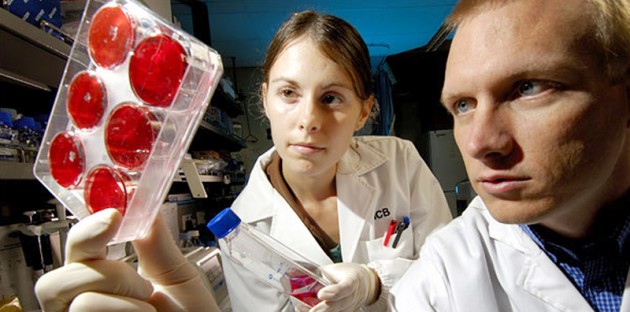Stem cell research rules lifted

Though the Obama administration’s stimulus package has removed some restrictions on stem cell research funding, it will take a while before the impact is felt in laboratories across campus.
The policy reversal means USF researchers, who already study adult and umbilical cord stem cells, will also be allowed to look at embryonic stem cells — a field for which
funding was restricted under the Bush administration.
One researcher, Paul Sanberg, has been studying stem cells for the past eight years and leads stem cell research at USF.
Stem cells, which can replicate for long periods of time, can change into different types of cells. Most adult stem cells, however, have the ability only to morph into specific,
predetermined types of cells. The advantage of embryonic cells lies in their ability to change into different types.
“While we have not worked with embryonic cells, the opportunity is to compare what we have seen in adult cells with embryonic,” Sanberg said.
He said looking at embryonic cells will open new doors for research.
“I think that we have been very fortunate to make good discoveries with non-embryonic cells,” Sanberg said. “Now (stimulus plan funding) opens up avenues to cells that we have not been able to study to find new info on how stem cells work.”
Though the administration’s new policy will increase opportunities for researchers, it will not immediately affect stem cell research, said Dr. Phil Marty, the associate vice president for research at USF Health and associate dean for research in the College of Medicine.
He said the the implementation of the new funding will be a “slow process” and will include expenses for faculty and student training.
“It will certainly make it easier for the faculty,” Marty said.
In compliance with federal regulations, USF was already conducting research on umbilical stem cells, which are more flexible than adult cells, said College of Medicine dean Stephen Klasko.
“We have a vibrant adult stem cell program that is ongoing,” he said. “At this point, we have no specific plans to make major changes, but we will follow events closely.”
Korie Fairbairn, a biomedical engineering graduate student, said she conducts research on animal cells and mature stem cells and would like to see the field of cell cultivation develop.
“The stimulus package puts more emphasis on basic research as a university, and I think that’s a good thing,” she said.
Student body president Gregory Morgan said he was wary of where some stimulus money was going.
“With the current economic climate, I am not sure if this is something that needs to be receiving funding from the government when other areas of our country are suffering,” he said.
Student body president-elect Juan Soltero said opening this area of research gives students an opportunity to make history.
“What we do with that research is what really makes a difference,” he said.







